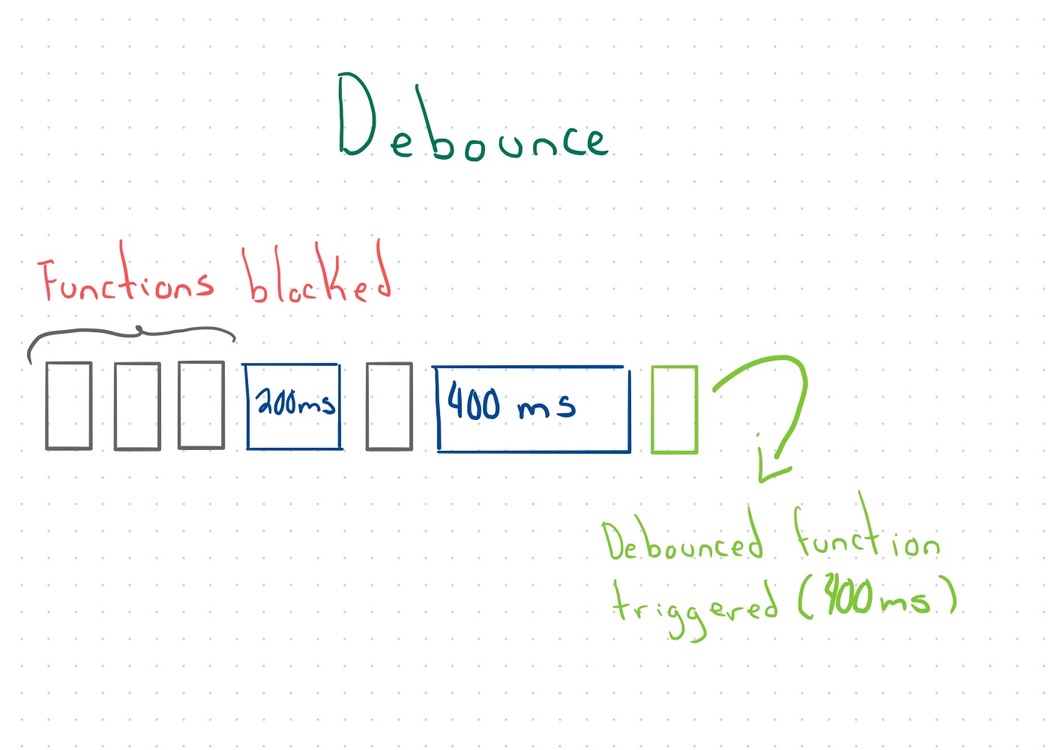Functions are a fundamental part of most programming languages. When dealing with performance, functions could be part of our bottlenecks. Fortunately, there are tools like throttle and debounce.
Both functions exist in lodash, one of the most famous libraries in the javascript ecosystem. However, before jumping into installing it, wait a little bit! Let's understand what they are, and how do they work.
First of all, what the heck are those functions?
Debounce
Debounce is a tool that receives a function and a delay. It triggers the function after this delay happened.
If something calls the function again before the requested time finishes, it resets the timer and starts the waiting all over again.

The principles of a debounce function are
- Set a function to be called and a timer to trigger the function
- Reset the timer every time this function is called
- Trigger the last function call when the timer ends.
By following these concepts, our debounce function looks like this:
type Func = (...args: any[]) => any
const debounce = <T extends Func>(fn: T, delay: number) => {
let timeout: NodeJS.Timer
return (...args: Parameters<T>) => {
clearTimeout(timeout)
timeout = setTimeout(() => fn(...args), delay)
}
}
Throttle
Throttle is pretty similar to debounce.
Instead of resetting the timer, it blocks any function call that happens while the delay is running.

The principles of a throttle function are
- Set a function to be called and a timer to block other function calls
- Block the function if it is called while the timer is running
- Trigger a function only when the timer is not running
Our throttle function looks like this:
type Func = (...args: any[]) => any
const throttle = <T extends Func>(fn: T, delay: number) => {
let timeout: NodeJS.Timer
return (...args: Parameters<T>) => {
if (timeout !== undefined) {
return
}
timeout = setTimeout(() => {
timeout = undefined
}, delay)
return fn(...args)
}
}